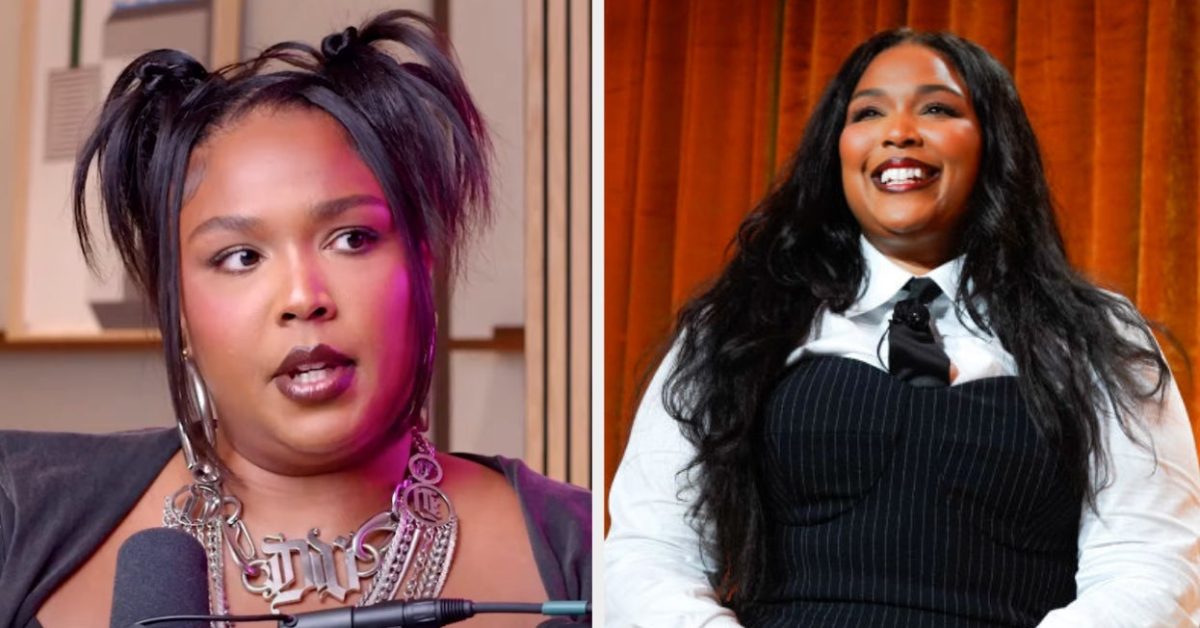
The Movie Stanley Kubrick Said Was the Best He’d Ever Seen
Aug 8, 2024
The Big Picture
Kubrick called
All That Jazz
the best film he’d ever seen, aligning with Fosse’s dark, introspective style.
Fosse’s dreamlike, darkly humorous film resonated with Kubrick due to its precision and thematic depth.
All That Jazz
is a masterful, Kubrickian exploration of hubris and mortality, showcasing Fosse’s unique blend of darkness and vulnerability.
For any filmmaker, receiving a stamp of approval from Stanley Kubrick, widely considered one of the finest American directors to ever live, would be quite an honor, to say the least. It would be like being praised by Michael Jordan for your jump shot. Being the quintessential tortured and self-destructive artist, Bob Fosse would likely be unbothered by a parade of celebration. The Academy Award-winning director and Tony-winning choreographer earned the respect of Kubrick, who once claimed that Fosse’s uber-personal meditation on life and death, All That Jazz, was the best film he had ever seen. It might come as a surprise that the cynical and bleak Kubrick would latch on to a musical, but Fosse, whose musicals were both sordid and intensely cerebral, operated like a song-and-dance version of Kubrick. All That Jazz, with its dreamlike formalism, pitch-black sense of humor, and a scintillating portrait of humanity on the brink of death, contains all the Kubrick trademarks and more.
All That Jazz Joe Gideon, a brilliant but self-destructive director and choreographer, juggles his Broadway show, a film project, and his chaotic personal life. As his health deteriorates, he spirals deeper into a world of addiction and hallucinations, all while envisioning a lavish, surreal musical finale to his lifeRelease Date December 20, 1979 Cast Roy Scheider , Jessica Lange , Ann Reinking , Leland Palmer , Cliff Gorman , Ben Vereen , Erzsebet Foldi , Michael Tolan Runtime 123 Minutes
‘All That Jazz’ Is Bob Fosse’s Self-Examination of Life and Death
In the early 1970s, renowned choreographer and stage director Bob Fosse was on top of the world. He won an Oscar (Cabaret), a Tony (Pippin), and an Emmy (Liza with a “Z”) in the same year. In 1974, the workaholic, chainsmoking womanizer, simultaneously staging Chicago (while working with his estranged wife, Gwen Verdon) for the theater and editing his Lenny Bruce biopic, Lenny, nearly worked himself to death. As he lay in a hospital bed after suffering a heart attack, pondering his fate, the inspiration for All That Jazz leaped onto the stage inside his mind. Fosse’s 1979 film follows Joe Gideon (Roy Scheider), a narcissistic, but self-loathing stage director with a womanizing streak and waning health, whose free-falling life is exacerbated by his inner demons. In other words, All That Jazz is the story of Bob Fosse.
Related This Cold War Thriller Was So Similar to ‘Dr. Strangelove,’ Stanley Kubrick Blocked Its Release A solemn and humanist look at the horrors of impending nuclear warfare.
Stanley Kubrick needs no introduction. Having directed countless classics, Kubrick’s mysterious personal life and inscrutable artistic process have made him an eternally fascinating object of fascination. The grandeur of Kubrick’s films, including 2001: A Space Odyssey, A Clockwork Orange, and The Shining, has inspired mythmaking surrounding his behavior and craft. The director is also remembered for the uncharacteristic group of films that he has publicly championed. Despite being the ultimate austere filmmaker, he adored comedies such as The Jerk, Albert Brooks’ Modern Romance, and White Men Can’t Jump. Kubrick’s fondness for comedy shouldn’t come as too much of a surprise, as his films, while not always expressed in a lighthearted manner, are consistently funny.
It Makes Sense That Stanley Kubrick Loved ‘All That Jazz’
All That Jazz, winner of the Palme d’Or in 1980, is a potent, highly expressive, and daring work of personal filmmaking that triggers an instant reaction. A maximalist confection of musical numbers, fantasy interstitials, and raw meta-commentary, the film is objectively a marvelous achievement. Its effortless virtuosity is enough to leave a permanent imprint on all viewers. Even someone like Kubrick, who crafted awe-inspiring images in his sleep, was overwhelmed by Fosse’s vision, as, according to John Baxter’s biography of the director, he referred to All That Jazz as the “best film I think I have ever seen.” At this point, Fosse was placed in the prestigious company of Federico Fellini, Ingmar Bergman, Orson Welles, and Michelangelo Antonioni, the world-class directors behind some of his favorite movies. The subjective tone of Kubrick’s proclamation, and the lack of any additional commentary on the film, leaves us with little assurance that he stood by this claim for the rest of his life. If you’re Fosse, though, you would undoubtedly take this honor with you to the grave.
“Do you suppose Stanley Kubrick ever gets depressed?” asks a weary Joe Gideon while editing his jumbled stand-up comedian movie in All That Jazz. It’s funny to think that Kubrick’s admiration for the film was because Fosse appealed to his hubris. In reality, Fosse’s blisteringly transparent portrayal of a tortured artist certainly resonated with Kubrick, the notorious perfectionist. Joe is the exact type of artist who would invaluably benefit from operating by the same code as Kubrick, who isolated himself away from Hollywood as a permanent resident of Great Britain while still taking advantage of Hollywood’s business apparatus. If only Joe could remove himself from his adulterous behavior and defiance towards his bosses, then maybe he could accept himself. The black, often morbid, sense of humor of All That Jazz prevents it from being a self-indulgent presentation of a stereotypical haunted artist. Kubrick, who extracted perverse humor in wartime and dystopian gangland settings, would likely have been enraptured by Fosse’s cynicism. The film’s spellbinding climactic number, where Joe, along with Ben Vereen, performs a lavish number called “Bye Bye Life,” is a bleak, Kubrickian twist on the popular Everly Brothers rockabilly hit, “Bye Bye Love.”
How ‘All That Jazz’ Appeals to Stanley Kubrick’s Sensibilities
Image via 20th Century Fox
Musicals, on the surface, don’t seem like Kubrick’s cup of tea. However, All That Jazz, a film heavily cribbing from the baroque and surrealist films of Federico Fellini, is anything but an escapist technicolor Hollywood song-and-dance show. Fosse poured his heart and soul onto celluloid, characterizing himself as a genius and a wretch. His ego is matched by his reconciliation for all the heartbreak and turmoil he’s caused. The writer-director renders his candor through audacious formalism that evokes an otherworldly sensation, perhaps explaining why the 2001 director would be such a fan. The film is edited with the same rhythm as Fosse’s groundbreaking jazz dance style on the stage, and its tone mirrors the sweaty claustrophobia of his theater work, suggesting that the material on the screen is a projection of what’s inside Fosse’s mind. The construction of these virtuosic set pieces, the dance rehearsals of Joe’s play, and the dream sequences where Joe flirts with the afterlife are Kubrickian in their precision. In many ways, Kubrick still stands as the definitive cinematic auteur, and few films are as distinctly tied to one director’s background and personality quite like All That Jazz.
If Stanley Kubrick were the hermetic, cold, and emotionally distant filmmaker that he’s erroneously reported to be, he would never throw flowers at All That Jazz, a masterful exploration of hubris, regret, and telegraphing one’s death that ascends to Kubrickian exceptionalism. Just as Kubrick’s films are about people in inhumane worlds attempting to salvage any vestige of humanity or order, Fosse grapples with being accepted into the afterlife despite all his misdeeds. Instead of getting bogged down by its lofty themes, All that Jazz is both a joyous and harrowing dissection of a tortured, but vulnerable soul. It is somehow, even though it has death on the mind 24/7, a life-affirming text, as it assures any viewer that unfettered autobiographical art is possible.
All That Jazz is available to watch on Tubi in the U.S.
Watch on Tubi
Publisher: Source link
It's Time For The Ultimate "Would You Rather": Hot Guys Vs. Christmas Food Edition
Decisions, decisions.View Entire Post › Disclaimer: This story is auto-aggregated by a computer program and has not been created or edited by filmibee.Publisher: Source link
Dec 28, 2024
Chris Hemsworth and Elsa Pataky Share Rare Photo with Their 3 Kids
Chris Hemsworth’s family Christmas is truly something to marvel over. In honor of the holiday season, Elsa Pataky shared a photo featuring her, her husband, their daughter India, 12, and twin boys Sasha and Tristan, 10. The Fast and Furious…
Dec 28, 2024
"All Of This Came Out Of Nowhere": Lizzo Publicly Responds To Sexual Harassment Lawsuits After Being Dismissed From A Case
"We're continuing to fight the other claims."View Entire Post › Disclaimer: This story is auto-aggregated by a computer program and has not been created or edited by filmibee.Publisher: Source link
Dec 27, 2024
This Fan-Favorite Elf Quote Almost Didn’t Make It Into the Film
11. Determined to maintain the old school aesthetic, Favreau told Rolling Stone he didn’t want to make the film “a big CGI extravaganza," only using the technology to add some snow. “I like motion-control, models, matte paintings,” he explained. “It…
Dec 27, 2024











